DOMAINS OF THRIVING
The Outward Bound Domains of Thriving (DoT) framework and tool combines our 60 year history with the latest insight and research on social-emotional development and resiliency. The tool focuses on student-centered social and emotional outcomes (inner colored circles) and conditions for learning provided by staff (outer gray circles) that create the healthy, balanced environment students need to learn.
There are four Domains of Thriving that highlight the four areas of human development experienced on an Outward Bound course: Courage, Belonging, Reflection, and Physical Engagement. Each domain includes two specific social-emotional skills which Outward Bound courses focus on:
Courage: Perseverance, Assertiveness
Belonging: Group Relationships, Teamwork
Reflection: Self-Awareness, Social-Responsibility
Physical Engagement: Self-Regulation, Physical Confidence
In addition to providing a framework for social-emotional development, the Domains of Thriving defines Outward Bound’s Conditions for Learning. These conditions are the “how” of what happens in the field: Structure, Progression, Staff and Student Relationships, and Exploration.
The Domains of Thriving guides our instructors by describing key practices to support the development of each social-emotional skill for their students and a common language to communicate and give feedback on these proven practices. Instructors use the Domains of Thriving as they are designing their courses and creating lesson plans, or when they notice that students are struggling with a certain skill, such as teamwork or perseverance.
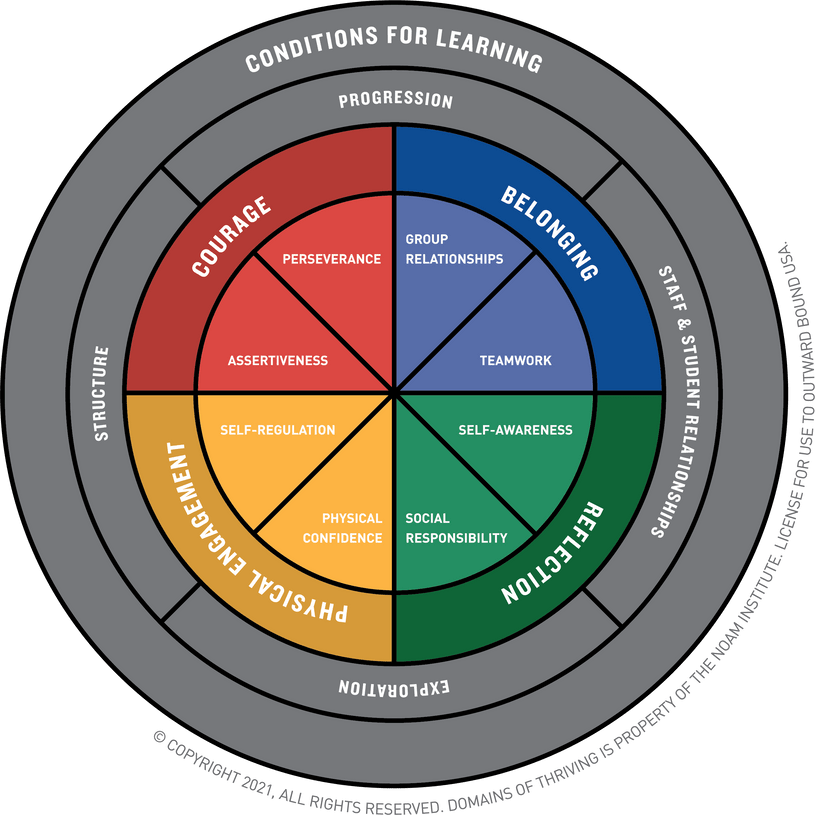
The Four Domains and their Associated Social-Emotional Skills
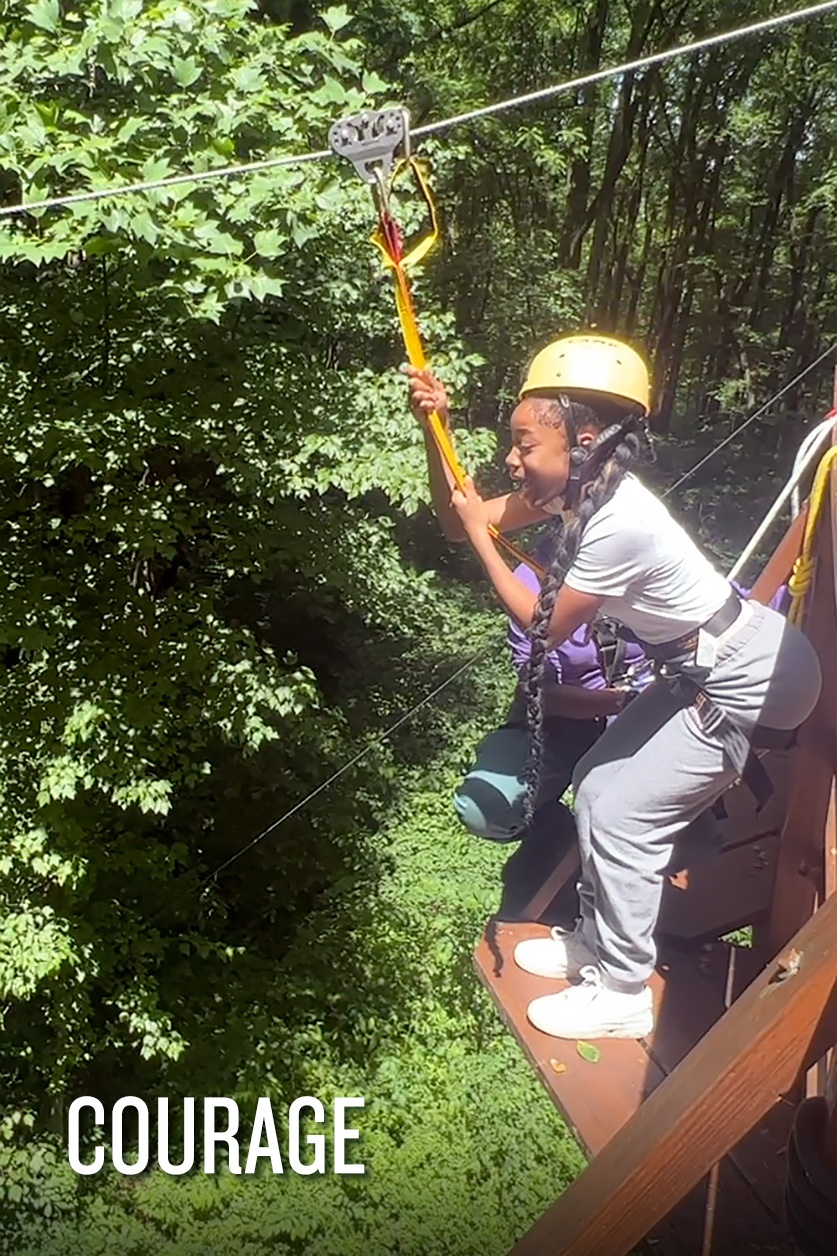
Assertiveness
What we teach on course: Sharing opinions and ideas, making decisions, and taking initiative in the group
What we measure: Confidence in putting oneself forward, advancing personal beliefs, or thoughts, and standing up for what one believes in.
Perseverance
What we teach on course: Responding positively to challenge, learning from mistakes and taking calculated risks
What we measure: Persistence in work and problem solving despite obstacles.
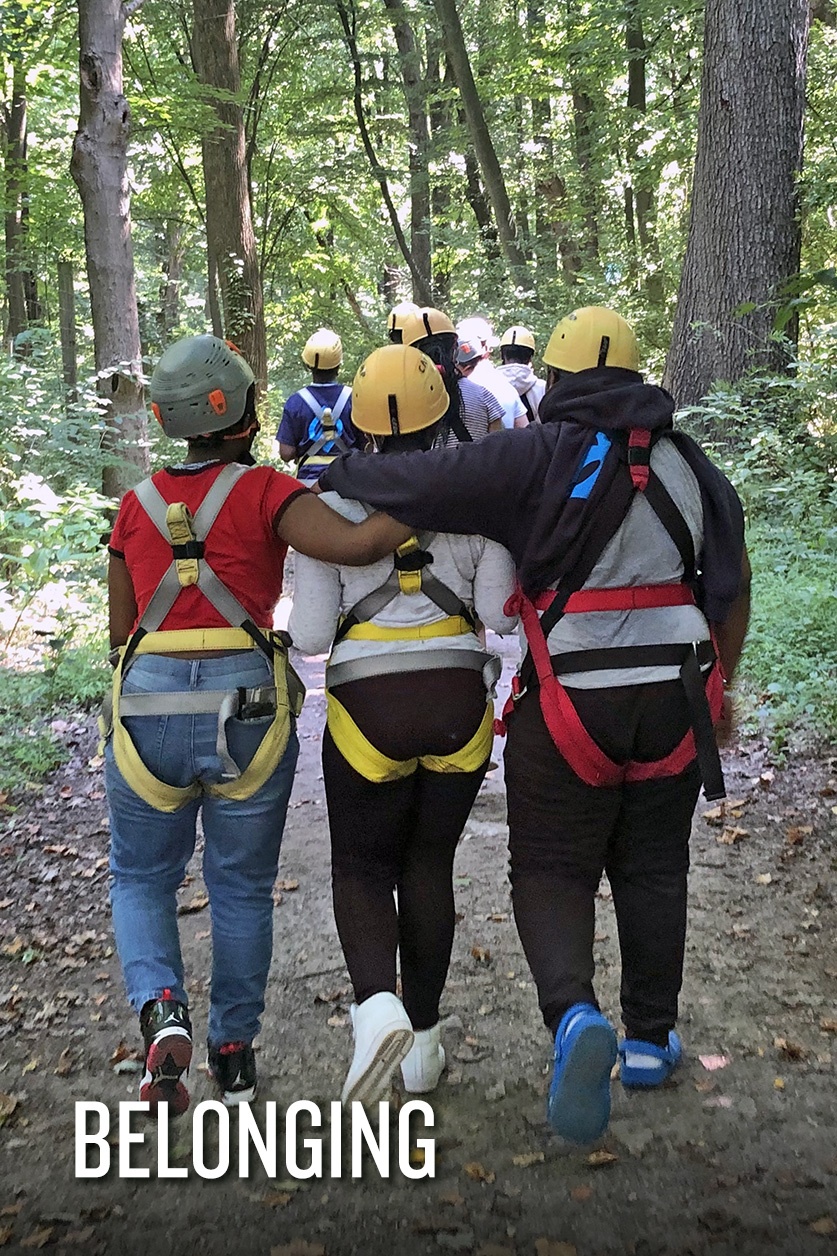
Group Relationships
What we teach on course: Building a connected and cohesive group where each student’s unique contribution is valued
What we measure: A commitment to a group demonstrated by care of others and a sense of belonging
Teamwork
What we teach on course: Creating a shared plan and using shared communication tools to collaborate and solve problems
What we measure: The ability and desire to work with others to achieve a common goal
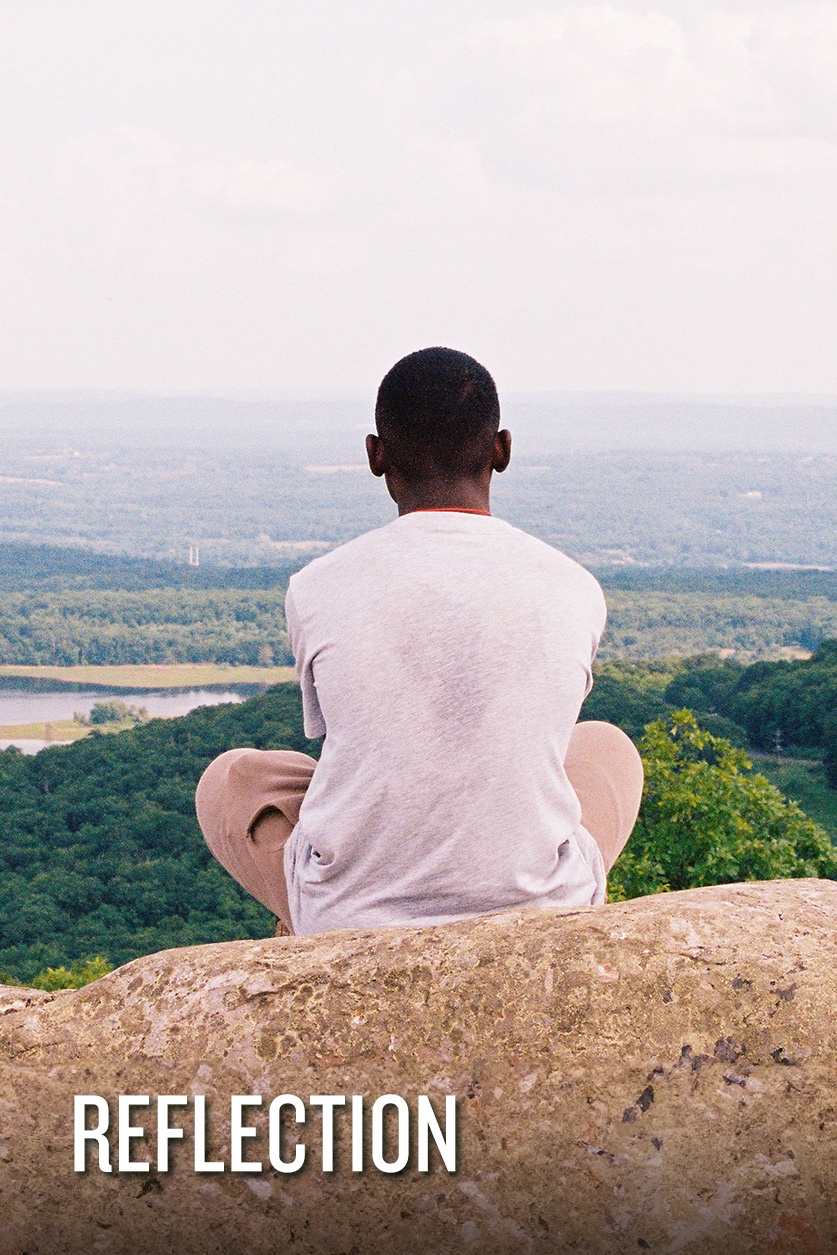
Self-Awareness
What we teach on course: Recognizing own emotions and thoughts, connecting these emotions with how we act and view situations, the group, and our communities.
What we measure: An interest and knowledge of one’s own abilities and challenges
Social Responsibility
What we teach on course: Considering other perspectives, attending to the needs of peers, the group as a whole, the larger community and the environment.
What we measure: An ability to be counted on and to keep one’s commitments and consider the perspectives and needs of others.
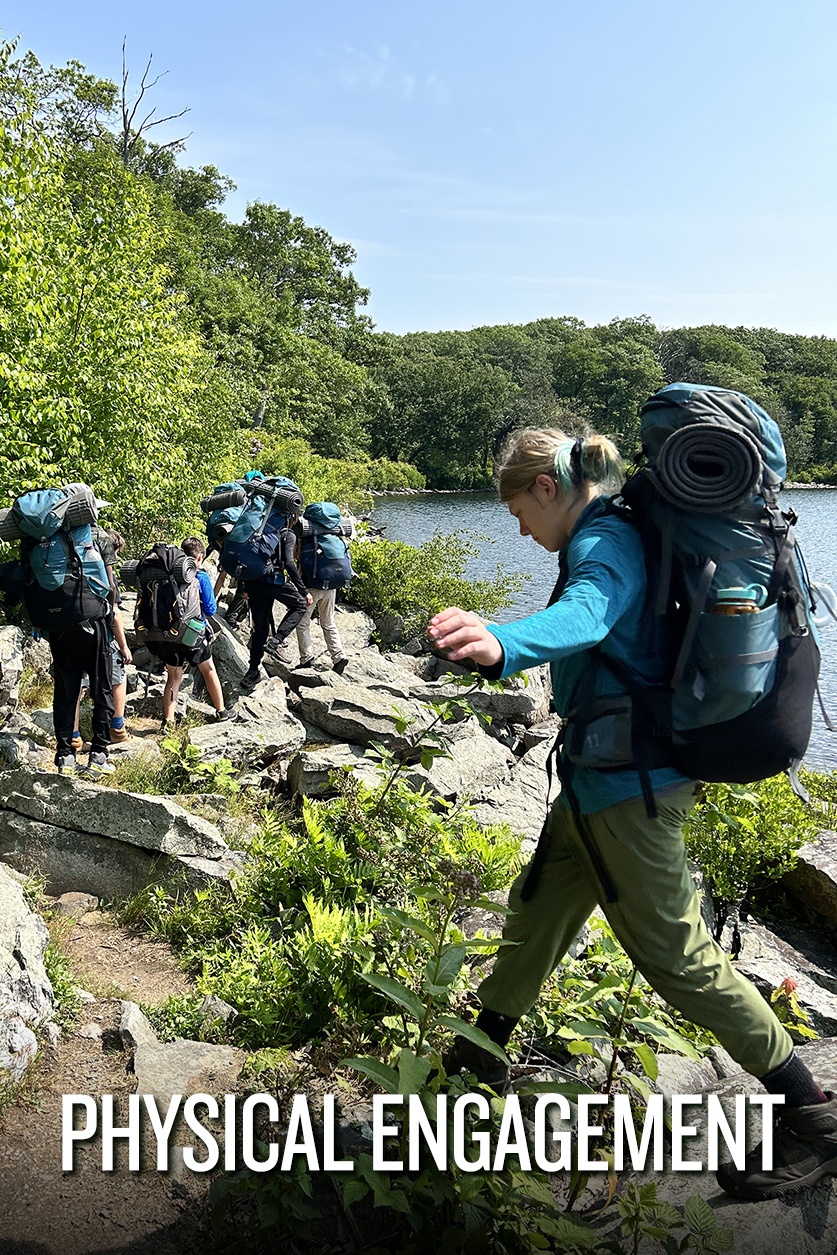
Physical Confidence
What we teach on course: How to gain confidence in physical self by taking care of physical wellbeing and developing competence and motivation for physical activity.
What we measure: A sense of efficacy in reaching goals using one’s body and ability to deal with physical challenges.
Self-Regulation
What we teach on course: Learning to express emotions and apply strategies to meet emotional needs
What we measure: An ability to counter distraction and strong emotions by calming, refocusing, and turn-taking.
The Domains of Thriving informs how we gather outcomes data. Read more about Outcomes Date >
